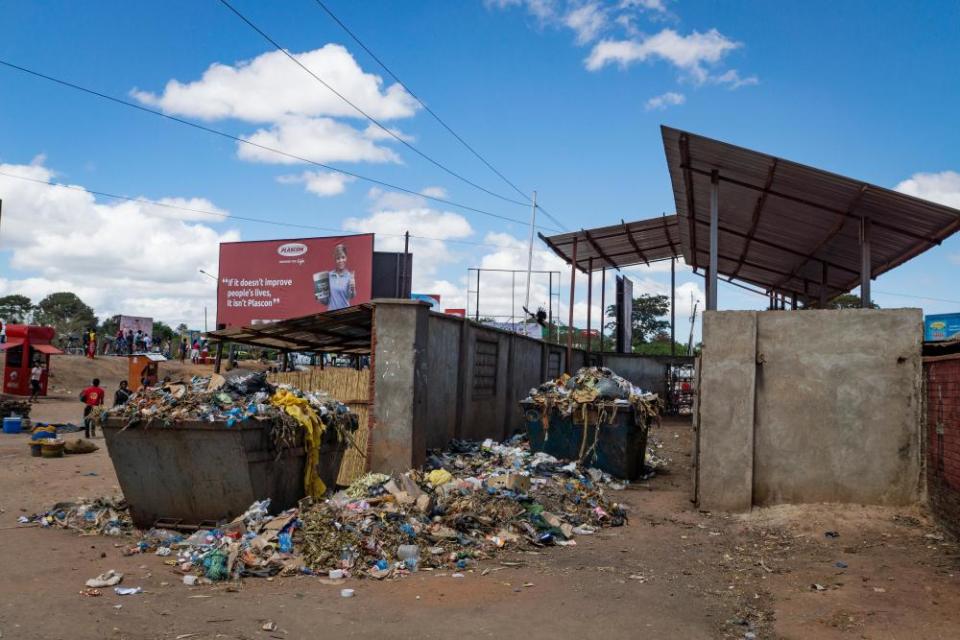Malawi factories ordered to close after ignoring plastics ban

The Malawian government this week ordered the closure of factories belonging to two major plastic producers for flouting the country’s plastics ban.
The companies – OG plastics and City Plastics – were found to still be manufacturing thin plastics, often used to make plastic bags, despite a ruling last year that banned its production, import and use.
The move followed inspections of the companies carried out by the department of environmental affairs.
In March, a Chinese plastics firm in the country was ordered to close for defying the ban.
Why the sudden focus on plastics?
Mankind produces roughly its entire body weight in plastics every year. But the vast majority of it is either not recycled, unrecyclable, or doesn't get reused once it's been recycled. Volumes ending up in the natural environment are surging. Plastic can take as much as 500 years to decompose.
What are the implications?
Plastic is ubiquitous – and often deadly. It kills sea creatures that eat it but cannot digest it. It gets into the human food chain by contaminating the fish that we eat. It is even in our tap water. There is no science about the long-term impact of humans ingesting plastic.
What is to be done?
Taxing plastic bags – or even banning them outright as Kenya has done – has changed consumer and producer behaviour. But what next? Deposit return schemes for plastic bottles work well in several countries. Charging for one-time coffee cups also seems to be on the agenda. But the real solutions may not be top down but ...
... bottom up?
Yes. Grassroots movements led the way on plastic bags, and have spawned others such as Refill, which emphasises reusing bottles, and A Plastic Planet, which urges plastic-free aisles in supermarkets. Popular culture remains hugely important: it's just possible that the British series The Blue Planet has changed attitudes overnight.
An official for OG Plastic said it employed hundreds of people at its factory.
“The ministry aims to send a strong message to the public that plying in illegal plastics has no place in the country and if found, those involved will face the law,” said Peter Magombo, principal environmental officer.
Under the law, the companies could also be fined by the courts.
More company inspections are expected to be carried out in the coming months.
Mathews Malata, interim leader for the Movement for Environmental Action in Malawi, commended the government for its action, but said it needed to do more to enforce the ban throughout the country.
“The government is not walking the talk [because] since the ban, we haven’t seen much [action] on the ground. Most of us have been complaining that we’ve been seeing the plastics in the market,” he said.
Related: Marine plastic pollution costs the world up to $2.5tn a year, researchers find
“We need to do more because these companies are not the only culprits. There are so many of them in our cities.
“We need sanity in the sector to promote sustainable development in the business and economic activities of this country.”
The government imposed the ban on thin plastic bags in 2015, but the move was overturned by the high court after a number of plastics manufacturers obtained an injunction, citing an “infringement of business rights”. Last year, the supreme court dismissed the appeal.
The ban was introduced to reduce plastic waste found in the country’s lakes and waterways. Malawi has a number of freshwater lakes that provide food and livelihoods for many people.
A report commissioned by the government, with support from the UN Development Programme and the Lilongwe Wildlife Trust, warned that the country’s largest freshwater lake, Lake Malawi, could run out of fish stocks by 2050 unless the use of thin plastics was curtailed.
The Lilongwe Wildlife Trust said Malawi produced 75,000 tons of plastic a year, 80% of which cannot be recycled.

 Yahoo News
Yahoo News 